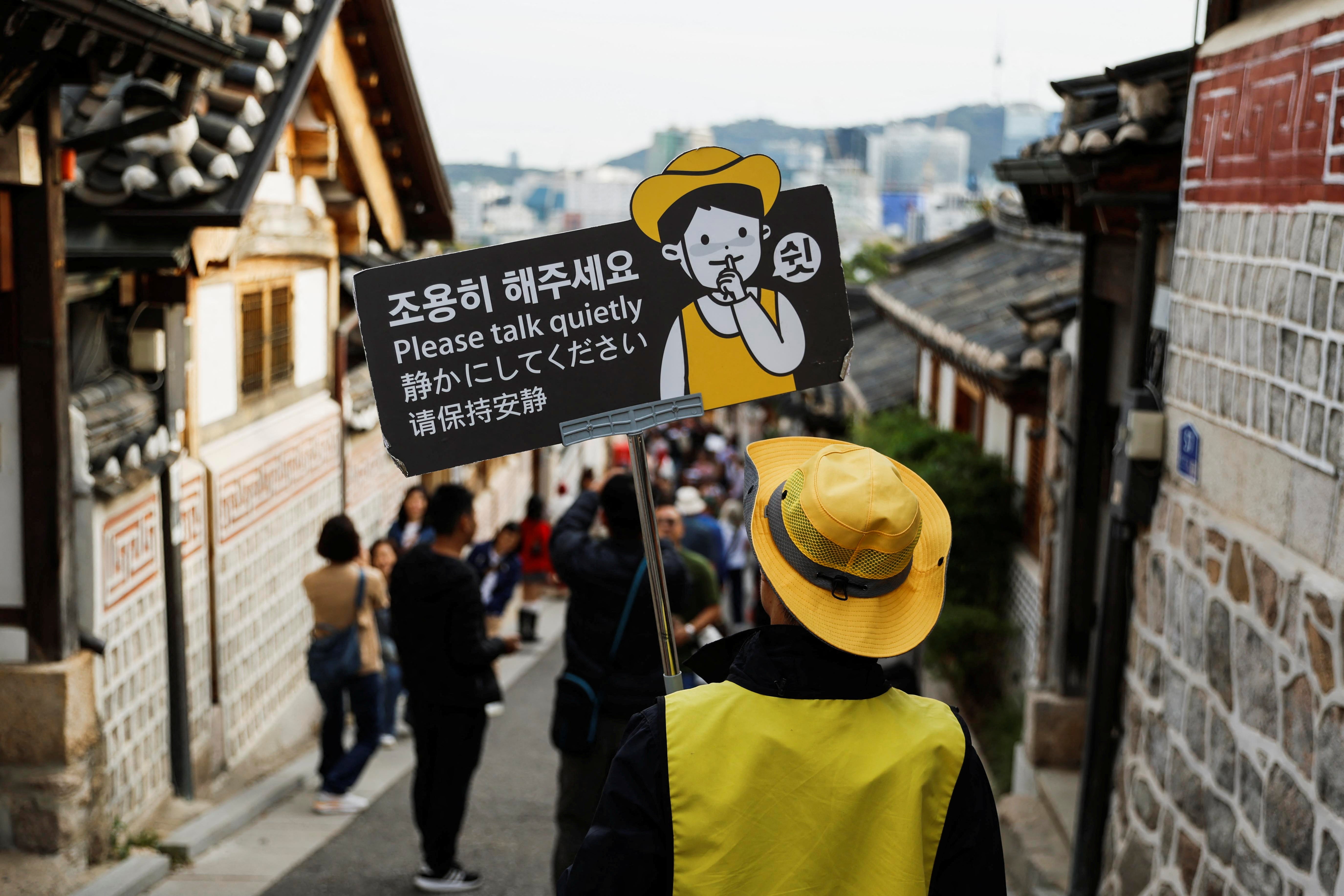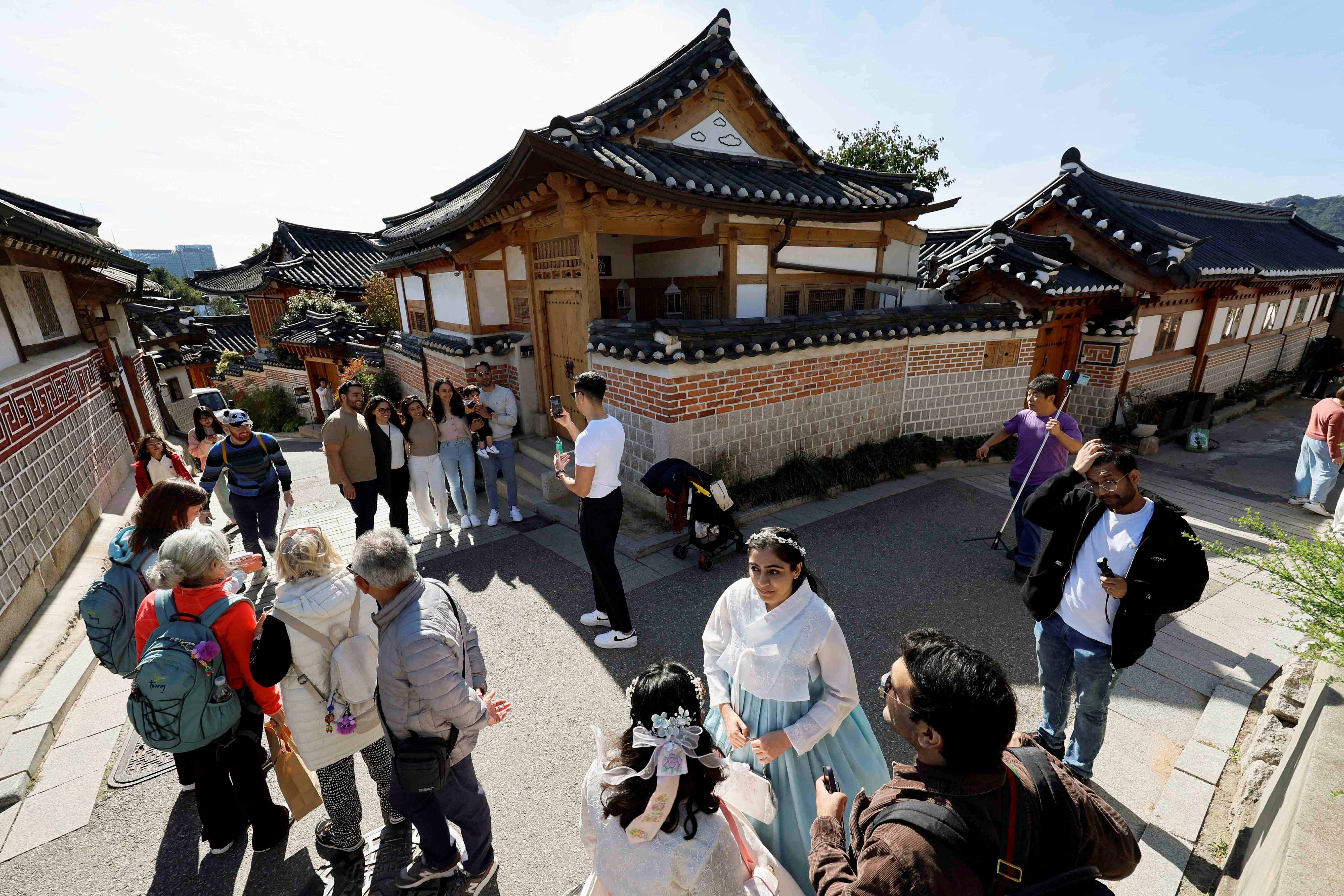Bukchon Hanok Village, with its narrow winding alleyways in hilly northern Seoul, dates back to the Joseon Dynasty.
Tourists and Koreans alike are drawn to the neighbourhood for its quaint houses with signature wood columns and doors, a courtyard and tiled roof.
However, increased tourism has become more than an inconvenience for the residents, who complain about noise, littering, public urination and invasion of privacy.
Kwon Young-doo, owner of a private art gallery in Seoul’s historic Bukchon Hanok Village, is concerned about an impending curfew policy aimed at mitigating overtourism in the area.
The curfew, set for a trial in November and to be officially launched in March next year, will limit tourist access to specific areas of Bukchon from 5 p.m. (0800 GMT) to 10 a.m.
Fines of up to 100,000 won ($72) will be imposed on violators.
“Who would want to visit?” said Kwon, the owner of the Asian Cultural Art Museum, who moved to the historic area 18 years ago. “They’ll leave with a bad impression of South Korea.”

Some tourists have been caught on surveillance cameras trying to enter private homes or peeking inside without permission, generating friction with locals.
Many residents have chosen to leave, leading to a 27.6% drop in the village’s population over the past 10 years, according to the Jongno district office.
The area attracted approximately 6 million visitors last year, compared with its resident population of around 6,100.
Chung Moon-hun, the Jongno district head, says the goal is to protect the rights of residents and the restrictions will be adjusted if necessary to make it effective. The area where curfew hours and fines will be imposed is approximately 34,000 square metres, about the size of five soccer fields.
But residents are sceptical about the policy’s effectiveness citing loopholes such as exemptions for tourists staying overnight in hanok accommodations. They also blame the proliferation of corporate-run hanok stays for disrupting their lives.
Since 2020, authorities have loosened restrictions on traditional Korean houses offering accommodation, resulting in a surge in corporate-run hanok stays in the residential areas, residents say.

Click Here to Read the Full Original Article at The Independent Travel…
